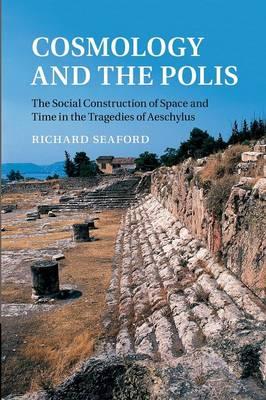Overview
This book further develops Professor Seaford's innovative work on the study of ritual and money in the developing Greek polis. It employs the concept of the chronotope, which refers to the phenomenon whereby the spatial and temporal frameworks explicit or implicit in a text have the same structure, and uncovers various such chronotopes in Homer, the Homeric Hymn to Demeter, Presocratic philosophy and in particular the tragedies of Aeschylus. Mikhail Bakhtin's pioneering use of the chronotope was in literary analysis. This study by contrast derives the variety of chronotopes manifest in Greek texts from the variety of socially integrative practices in the developing polis - notably reciprocity, collective ritual and monetised exchange. In particular, the Oresteia of Aeschylus embodies the reassuring absorption of the new and threatening monetised chronotope into the traditional chronotope that arises from collective ritual with its aetiological myth. This argument includes the first ever demonstration of the profound affinities between Aeschylus and the (Presocratic) philosophy of his time.
Full Product Details
Author: Richard Seaford (University of Exeter)
Publisher: Cambridge University Press
Imprint: Cambridge University Press
Dimensions:
Width: 15.30cm
, Height: 2.20cm
, Length: 23.00cm
Weight: 0.560kg
ISBN: 9781107470729
ISBN 10: 1107470722
Pages: 382
Publication Date: 01 January 2015
Audience:
Professional and scholarly
,
Professional & Vocational
,
Postgraduate, Research & Scholarly
Format: Paperback
Publisher's Status: Active
Availability: Manufactured on demand

We will order this item for you from a manufactured on demand supplier.
Reviews
'This is an important work that redefines our conception of central categories of early Greek thought: space, time, ritual, and money. It will be of interest to scholars and advanced students working in the areas of classical Greek literature, Greek history, philosophy, and theatre.' Vayos Liapis, The Classical Journal 'The five parts of this ambitious book examine the chronotopes in Homer and archaic Athenian society, money and ritual in the Dionysiac festival, the chronotopes in Aeschylus's plays ... the unity of opposites in Aeschylus's theology and Heraclitus's cosmology, and the sociocultural implications of the Pythagorean way of life and Pythagorean opposites in Aeschylus's Oresteia. This brilliant study opens up new vistas on old problems.' J. Bussanich, Choice Review
'This is an important work that redefines our conception of central categories of early Greek thought: space, time, ritual, and money. It will be of interest to scholars and advanced students working in the areas of classical Greek literature, Greek history, philosophy, and theatre.' Vayos Liapis, The Classical Journal 'The five parts of this ambitious book examine the chronotopes in Homer and archaic Athenian society, money and ritual in the Dionysiac festival, the chronotopes in Aeschylus's plays … the unity of opposites in Aeschylus's theology and Heraclitus's cosmology, and the sociocultural implications of the Pythagorean way of life and Pythagorean opposites in Aeschylus's Oresteia. This brilliant study opens up new vistas on old problems.' J. Bussanich, Choice Review
Author Information
Richard Seaford is Professor of Ancient Greek at the University of Exeter. His publications range from Homer to the New Testament and include commentaries on Euripides' Cyclops (1984) and Euripides' Bacchae (1996), Reciprocity and Ritual: Homer and Tragedy and the Developing City-State (1994) and Money and the Early Greek Mind: Homer, Philosophy, Tragedy (2004). In 2009 he was President of the Classical Association.



